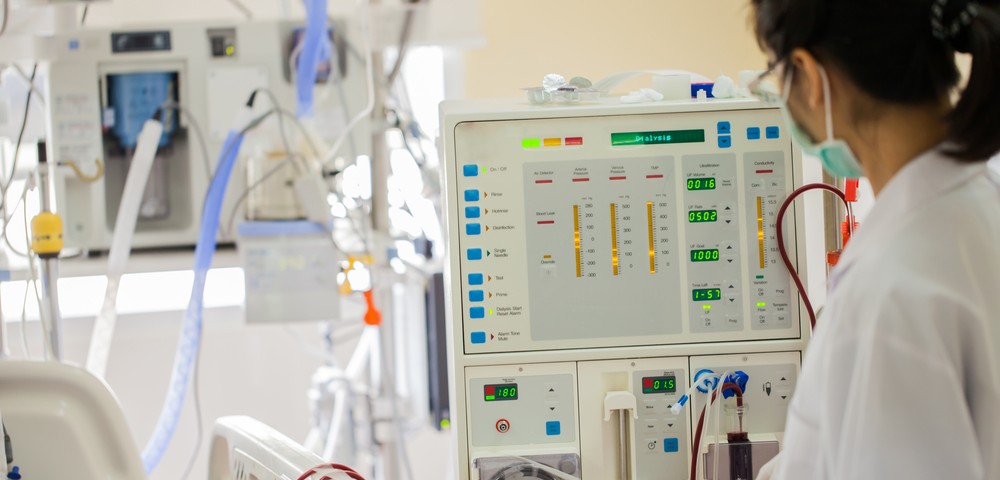Three times a week dialysis sessions may actually harm kidney disease patients, with research showing that the two-day treatment break given these patients increases their likelihood of being hospitalized by 69 percent and raises their risk of death by 22 percent, according to researchers at the University of Sheffield.
Those findings were reported in a 2015 study led by Dr. James Fortheringham. Dr. Fortheringham recently received the Clinician Scientist Award, a five-year grant by the National Institute of Health Research (NIHR), to continue his research into kidney disease patients undergoing hemodialysis and potential ways to improve their treatment.
“I’m trying to identify who it is that is getting admitted to hospital and dying after this two day break and why. Harnessing existing data, including the valuable UK Renal Registry, I will examine if wider use of some of the care techniques we already use here in the UK can combat the two day break problem,” Dr. Fotheringham said in a news release.
“Doing more dialysis might tackle the two day break problem, but some of what we have learned from existing clinical trials and observational studies don’t always agree,” he added. “If more dialysis is needed, I want to know who to give this dialysis to and if they will accept it. My research fellowship is designed to answer these and other questions.”
The 2015 study — “The mortality and hospitalization rates associated with the long interdialytic gap in thrice-weekly hemodialysis patients” — was conducted at the University of Sheffield’s School of Health and Related Research (ScHARR) and sponsored by Kidney Research UK. It was published in journal Kidney International as part of Dr. Fotheringham’s PhD work.
“In addition to identifying and beginning to understand the two day break problem in haemodialysis, I’m very fortunate that my research has yielded some other important results: The UK Renal Registry is developing a new way of reporting survival following dialysis or kidney transplants based on my work. Some of my analyses also helped secure funding for a study to find the optimal setup for kidney units to insert a peritoneal dialysis catheter — a treatment given to patients with severe chronic kidney disease,” Dr. Fotheringham said. “The University of Sheffield’s ScHARR and The Sheffield Teaching Hospitals NHS Foundation Trust are again collaborating on the UK-Cath study.”

